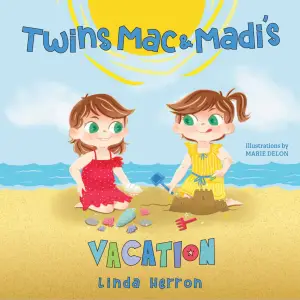Review of The Mighty Red by Louise Erdrich
I was first drawn to The Mighty Red by Louise Erdrich when I learned it was set in the Red River Valley, an area rich with history and vitality. Having grown up in a similarly tight-knit community, I felt an instant connection to the stories of tangled relationships and the intricate dance of nature’s unpredictability. Erdrich, a master storyteller, has this remarkable gift for making rural life sing with complexity and depth.
At the heart of The Mighty Red is the whirlwind romance of Gary Geist and Kismet Poe, whose hasty marriage forms the pulse of the narrative. Their union is not just a personal journey but a prism through which we explore themes of love, loss, and the myriad ways our histories shape us. Gary, haunted by past traumas, longs for stability, while Kismet, a dynamic spirit shaped by her own scars, seeks a fresh start. It’s a bittersweet connection that resonates, especially in moments when family secrets bubble to the surface, threatening to shatter their fragile bond.
Erdrich’s masterful prose paints the landscape as a vital character itself, with descriptions that pull you right into the heart of the Red River Valley. The way she writes about the land—"The fields flat, slick, glistening"—not only evokes its essence but reflects the tumultuous inner lives of her characters. You can feel the weather’s mood mirroring their struggles, a theme that pulls at the very roots of existence.
The supporting cast—Crystal, Kismet’s mother; Eric, Gary’s loyal friend; and Hugo, the lovesick boy—enrich the narrative, each character adding depth and nuance. Erdrich excels in showcasing their complexities and vulnerabilities, making them feel like old friends by the end of the novel. The community dynamics are as compelling as the protagonists’ journeys, offering a reflective space for the reader to ponder how our personal stories intertwine with communal narratives.
While the sprawling nature of the book can occasionally feel overwhelming—there are moments where overlapping timelines and myriad perspectives might elicit a momentary pause—I found this intricacy reflective of life itself. It indeed mirrors the meandering flow of the Red River: sometimes turbulent, sometimes calm, but always in motion.
Interspersed with gravity are flashes of humor that provide relief, reminding us of the absurdities of life—the antics of Gary’s parents and their hyperactive dogs introduced delightful moments amid heavier themes. These touches of levity felt genuine, brilliantly illustrating resilience.
The environmental themes resonate deeply, exploring the impact of industrial farming and the challenges that accompany rural living in contemporary America. There’s a poignant reflection on land ethics that made me pause often, considering the lasting impressions of our choices on future generations.
In the end, The Mighty Red is more than just a novel; it’s a profound meditation on belonging—to land, to people, and ultimately to oneself. It invites readers to reflect on their connections, encouraging a deeper understanding of love and community.
I wholeheartedly recommend this book to anyone who appreciates rich storytelling and who finds beauty in the entwining tales of personal and collective memory. Whether you’ve grown up in a rural community or simply seek an engaging escape into a world of intricate human experiences, this novel will leave you reflecting on your journey long after the last page is turned. Erdrich has once again proven why she is a luminary in the literary world, reminding us that even amidst heartache, love can flourish in the most unexpected ways.















